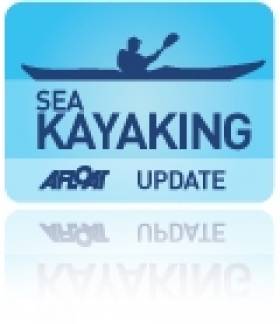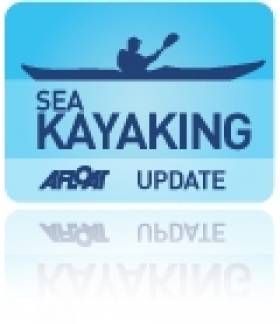Displaying items by tag: Yangtze River
Irish Duo Reach End of Asian Adventure By Kayak
#Kayaking - David Burns and Maghnus Collins yesterday celebrated the end of their 16,000-mile Silk Roads to Shanghai adventure across Asia by foot, bike, raft and kayak.
Ten days ago we reported that the duo were in Wugu on the Yangtze River, just 450km away from completing their epic 292-day journey from Istanbul to Shanghai - and becoming the first people to navigate Asia's longest river from source to sea by kayak.
But as Shanghai Daily reports, the Irishmen have reached their destination in one piece, and received a rapturous welcome from the city's Irish community at the Bund yesterday morning.
Burns and Collins, from Derry and Limerick respectively, negotiated the final leg of their charity challenge in sea kayaks, battling rapids and avoiding dangerous wildlife such as bears and wolves.
And on arrival in Shanghai they paid tribute to the kindness and generosity of the Chinese people they met along the way.
"Chinese people were incredible for the whole journey as they offered help everywhere," said Burns. "The fishermen gave us tea when we were cold and gave us food when we were hungry. We were well looked after."
Shanghai Daily has more on the story HERE.
Irish Adventurers First To Take On The Yangtze By Kayak
#Kayaking - Last April Afloat.ie highlighted two intrepid Irish adventurers on the first leg of a gruelling 16,000-mile charity trek across Asia - by foot, bike, raft and kayak - along the Silk Roads to Shanghai.
But as the New Year began last week - just over eight months later - the duo of Maghnus Collins and David Burns were just 450km away from completed their epic journey, as The Score reports.
Limerick man Collins told the sports website that he and Derry native Burns were at Wuhu, a city on the Yangtze upstream of Shanghai, and from where the pair will tackle the rest of the route along the river by kayak.
It's surely incredible enough that Collins and Burns ran the equivalent of 25 marathons in 27 days as they crossed Tibet to the source of Asia's longest river - but being the first ever kayakers to navigate the "incredibly dangerous" Yangtze from source to sea is almost beyond belief.
Little wonder, then, that they've so far raised €30,000 for Irish-based charity Self Help Africa, and will surely reach their target of €50,000 by the time they expect to reach the finish line this day next week.
The Score has more on the story HERE - and listen to an interview with Collins and Burns on Today FM's The Last Word with Matt Cooper (at the 41-minute mark of part 2).






























































